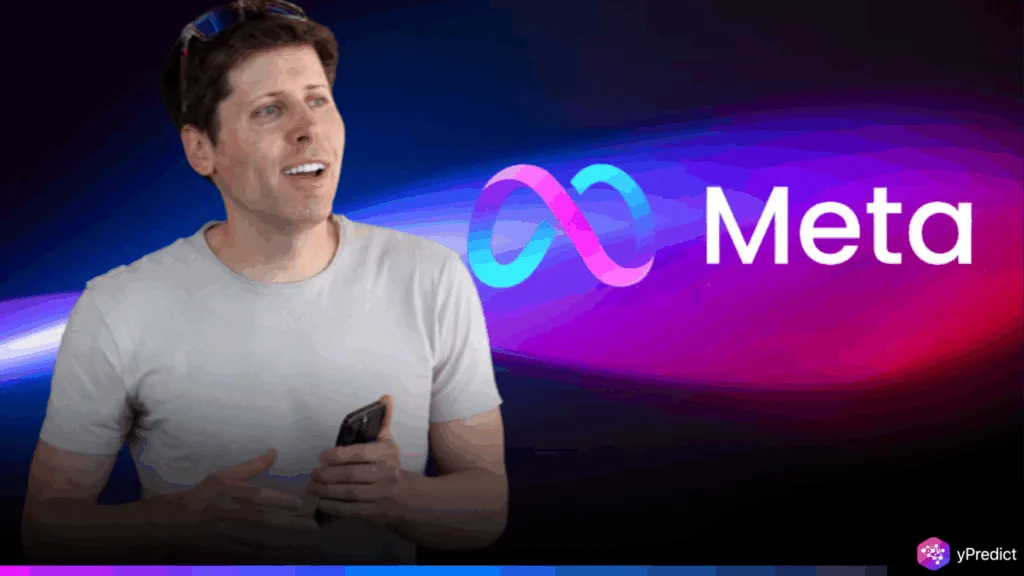
Meta’s bold attempts to poach AI talent from rivals like OpenAI and Google DeepMind are hitting roadblocks. Sam Altman, the CEO of OpenAI, claims that even huge compensation packages have failed to convince key researchers to leave. Some offers reportedly reached as high as $100 million. In a podcast with his brother Jack Altman, Sam confirmed reports that Meta’s hiring practices were strong but largely unsuccessful. Furthermore, he expressed his belief that top talent stays at OpenAI because of its innovation-focused culture and clear goal.
Can Meta’s Cash Attract the Best?
Mark Zuckerberg, the CEO of Meta, is hiring a lot of people and is concentrating on creating a team that uses superintelligence. To achieve this, Meta’s hiring practices have involved making offers to leading specialists, such as those at Google DeepMind and OpenAI. Some compensation packages reportedly included salaries that easily exceeded $100 million, along with signing bonuses.
Despite these bold offers, most of the targeted individuals turned them down. Sam Altman confirmed that Meta tried recruiting OpenAI CEO-level talent, including senior researchers. However, not a single member of the core team fell for the trick. Additionally, Altman thinks that to retain top AI talent, mission and vision are more significant than financial compensation.
Sam Altman Responds to the Hiring Push
According to Sam Altman, simply offering more money does not lead to innovation. He claimed that OpenAI employees evaluated their prospects and discovered greater meaning in continuing their current work. Furthermore, he emphasized that OpenAI’s goal of developing useful AGI outweighs high pay.
Additionally, Meta recruitment targeted well-known individuals like Koray Kavukcuoglu of DeepMind and Noam Brown of OpenAI. They both said no. Altman noted that the depth of innovation required in AI may not be supported by Meta’s culture. Furthermore, while acknowledging Meta’s resources, he questioned their capacity for true innovation.
Sam added to the rivalry by teasing a brand-new AI-powered social media initiative from OpenAI. In contrast to the algorithmic formats of conventional apps, he discussed the creation of feeds tailored to users’ actual preferences. If it is successful, Meta’s efforts in AI-based networking may face direct competition.
What’s Ahead in the AI Talent War?
Meta has appointed former Scale AI CEO Alexandr Wang to lead its superintelligence team. To demonstrate its commitment, it also invested in Scale AI. Despite hiring Johan Schalkwyk from Sesame AI and Jack Rae from Google DeepMind, Meta has made some progress, but is still lagging.
The upcoming months are critical. Anthropic, OpenAI, and Google DeepMind continue to maintain their rapid development pace, while Meta also grows. Furthermore, a new open model from OpenAI is anticipated to intensify the competition for AI talent.
In addition, Sam Altman hinted at future OpenAI innovations that could challenge established social app conventions. As both tech giants explore AI-powered social media, their approaches differ. Meta depends on resources and reach. In contrast, OpenAI relies on its culture and vision. The result could influence the future.
Final Thoughts
As Sam Altman explained, a culture of true innovation, vision, and mission remains the primary draw. Even though Meta recruitment may continue to take a risky approach, the tech sector is monitoring whether real innovations are a result of pay. The competition for top talent now involves more than pay; it also involves faith in the work. Therefore, maintaining core values will be the real challenge as businesses grow quickly. Ultimately, the future of AI itself may be shaped by those who match talent with purpose.





